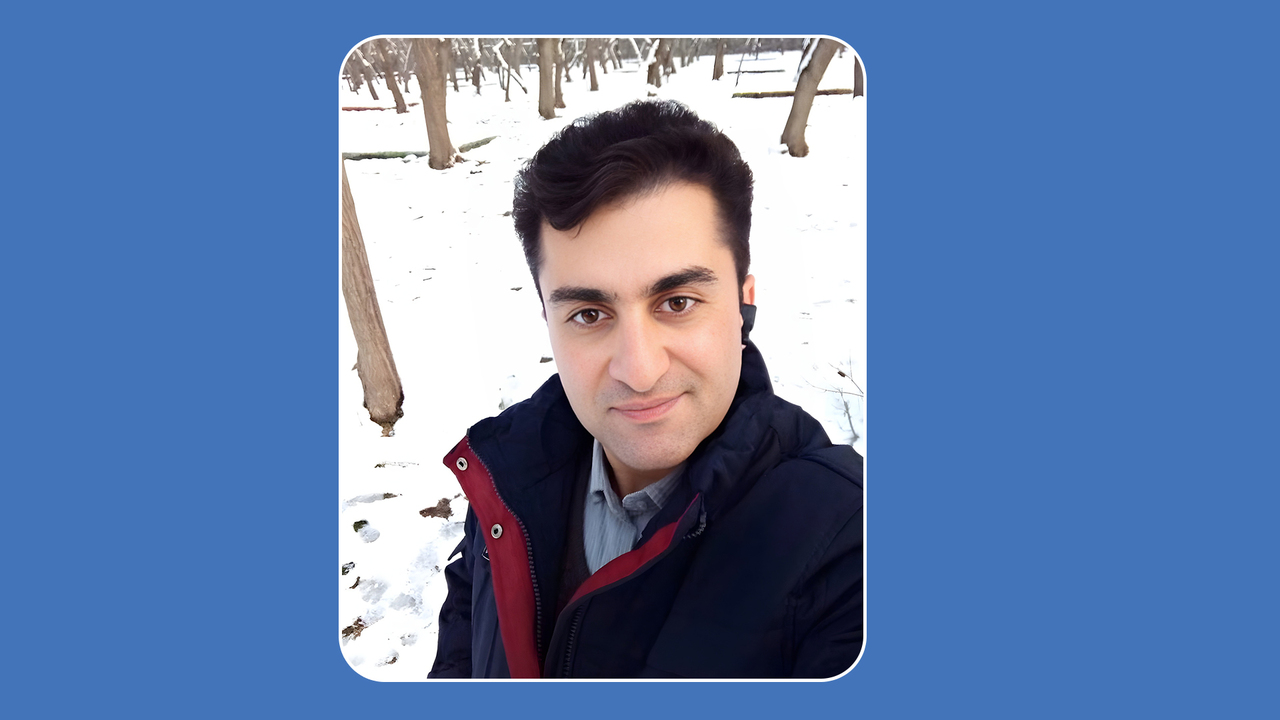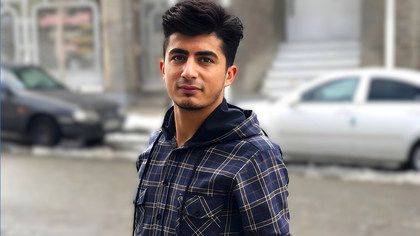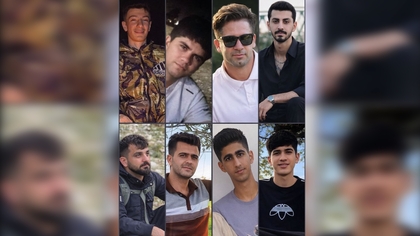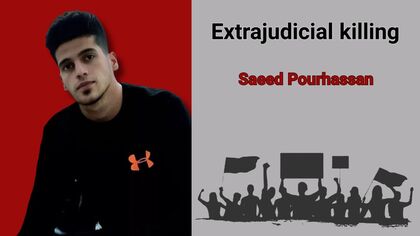A Testimony Against Torture and Injustice: Rezgar Beigzadeh Babamiri’s Account of 130 Days Under Systematic Violence

Rezgar Beigzadeh Babamiri, a 47-year-old farmer from a village near Tikantappeh in Bukan County, and the father of three children, was arrested by security forces on April 16, 2023, during the Jin, Jiyan, Azadi (Woman, Life, Freedom) uprising. His arrest was due to his assistance to injured protesters in Bukan, providing them with medication and medical supplies. Rezgar spent 130 days in detention, much of it in solitary confinement, subjected to severe physical and psychological torture.
Following his detention, he was prosecuted alongside three others in a joint case. He faced charges of "command responsibility for intentional murder" and, on January 16, 2025, was sentenced to 15 years in prison by the Criminal Court of West Azerbaijan Province.
The Structure of Torture and Suppression: An Eyewitness Report
This report, based on an open letter Rezgar published from inside Urmia Central Prison, offers a detailed and documented account of torture, threats, and an unjust judicial process within the framework of systemic repression in the Islamic Republic of Iran. His testimony stands as both a factual record of gross human rights violations and a case study of the regime’s pattern of ethnic and political oppression.
From Arrest to the Start of Systematic, Targeted Torture: 130 Days of Horror
From the moment of his arrest on April 16, 2023, Rezgar entered a cycle of organized violence. According to his account, torture became a daily routine at the Urmia Intelligence Detention Center. Over 130 days, mostly spent in solitary confinement, he endured brutal physical and psychological abuse—not to extract information, but to break his spirit, instill terror, and force confessions.
Rezgar wrote:
"In addition to bruises covering my body, my left ear became deaf due to repeated blows to my head by interrogators. It took three months for my hearing to partially recover. During this period, I suffered multiple severe infections. The marks of beatings are still visible on my legs."
The torture occurred deliberately and in secret, away from any independent oversight. Rezgar was denied access to a lawyer, medical care, and subjected to repeated death threats. Torture was not incidental; it was a central tool of the interrogation process.
Threats of Execution, Impunity for Torturers, and the Denial of Justice
Even after his transfer to Urmia Central Prison, the pressure did not cease. Intelligence agents explicitly threatened Rezgar with charges of "corruption on earth" (efsad fel-arz), carrying the death penalty, if he pursued legal action regarding his torture.
Despite these threats, Rezgar persisted in filing formal complaints. He writes:
"From the very beginning, despite threats, I tried to legally pursue the torture and misconduct I endured."
Eventually, his complaint was registered under case number 140335920002257834 at the Urmia Public and Revolutionary Prosecutor’s Office and forwarded to the Military Court of West Azerbaijan Province. Yet the judicial authorities, instead of pursuing justice, issued a dismissal order, citing the "lapse of more than a year since the alleged torture." They even refused to refer him to a forensic medical examination, effectively blocking any possibility of proving the torture.
Rezgar remarks:
"When the system refuses even a neutral medical examination, it does not just ignore torture—it protects the torturers."
From Solitary Cells to Courtroom Mockery: How Justice is Humiliated
Rezgar’s experience in the Revolutionary Court of Urmia paints a grim picture. Rather than offering a platform for truth-seeking, the courtroom became another site of humiliation.
When Rezgar and other co-defendants detailed the torture they had suffered and requested forensic examinations, presiding Judge Reza Najafzadeh responded with mockery:
"Did you expect us to serve you kebab?"
According to Rezgar, this callous comment epitomizes the judiciary’s true function under the Islamic Republic—not upholding justice, but protecting the security apparatus and humiliating victims.
Torture, Fabricated Charges, and Ethnic Cleansing: A Systematic Mechanism
Rezgar situates his ordeal within a broader analysis of the security and judicial structures in Iran. He asserts that security forces do not serve public safety, but rather political power, often using torture and fabricated charges as tools of ethnic repression against Kurds.
He writes:
"Security forces act not for the people’s safety, but to fulfill the ideological and ethnic biases of the ruling regime."
Rezgar believes his experience is not an anomaly, but a systematic feature of the Iranian criminal justice system, characterized by ethnic discrimination, political revenge, and complete lack of accountability.
A Call to International Institutions: Responsibility Against Structural Crimes
In the closing of his testimony, Rezgar issues a powerful appeal to international organizations, human rights activists, and global civil society:
"If systematic torture and human rights violations in Iran are not real, why are victims’ complaints ignored? Why are victims threatened with execution?"
Rezgar urges organizations like the International Criminal Court, the United Nations, independent media, and freedom-loving individuals not to remain silent in the face of ongoing crimes against humanity in Iran.
Open Letter by Rezgar Beigzadeh Babamiri
"From April 16, 2023, until August 23 of that year, this inhumane situation continued more or less. Despite the threatening remarks by the Intelligence Department officers after my transfer to Urmia Central Prison, from the very first days, I made every effort to legally reflect the acts of torture and other violations committed by the interrogator and case investigator in case number 140235920000915742 against me, to the judicial authorities.
After months of delay, evasion, and stalling, I finally managed to lodge a complaint against the interrogators and investigators responsible for torture. The complaint was registered under case number 140335920002257834 at the Urmia Prosecutor's Office and, after several weeks, was referred to the Military Court of West Azerbaijan Province. However, the first branch prosecutor of the Military Court, citing the unjustified excuse of 'more than a year having passed since the torture incidents', issued a non-prosecution order through document number 14033539000650969 and refused to refer me to a forensic medical examiner. Effectively, this action prevented the legal pursuit of the human rights violators and provided them with impunity.
It is evident that torture is an anti-human crime, carried out secretly and away from the eyes of witnesses and cameras, and the only evidence a torture victim can present is the marks and injuries on their body. Preventing access to an impartial physician practically means granting immunity and offering protection to the torturers and human rights violators.
If human rights violations and torture are truly not systematic in Iran, then why do competent courts remain silent in the face of torture victims’ complaints? How can a security agency summon a torture victim like me in prison and threaten me with execution because of my complaint, without any entity defending the victim? Why should providing aid to the wounded be met with such severe punishment?
How can the Revolutionary Court of Urmia and Judge Reza Najafzadeh, despite the petitions submitted by me and my co-defendants describing the various types of torture inflicted on the 14 defendants of this case, react with complete indifference during court sessions, and respond to our reports of torture merely with the disgraceful remark: ‘Did you expect us to serve you kebab?’
Apparently, in this country, the independence of the judiciary is nothing but a myth. The torturer enjoys full impunity, and the victim is subjected to further threats, pressure, and punishment. The goal of security forces is not to maintain societal safety but to justify the upper authorities and to implement blind sectarian and ethnic prejudices. Torture and frame-ups have become routine and tools of repression and intimidation for those in power.
I call on public opinion, civil organizations, international communities, human rights organizations, free media, and all freedom-loving individuals not to remain silent against these inhumane practices.
During the continuous 130 days of detention combined with torture, in addition to having my whole body bruised, my left ear became deaf due to repeated blows to my head by the interrogators, and I remained deaf for three months. Later, the torn eardrum of my left ear gradually healed and regained some hearing, but during this recovery period, I suffered multiple severe infections.
Even now, the signs of beatings on my calves are still visible, and a specialist in otolaryngology can confirm the damages inflicted on my ear two years ago. Nevertheless, my repeated complaints regarding torture have been ignored, and the Revolutionary Court exhibited no reaction to my and my co-defendants' statements—except for the disgraceful remark from Judge Reza Najafzadeh: ‘Did you expect us to serve you kebab?’
Apparently, in the view of this judge, torture is a normal occurrence and deserved for anyone who helps fellow humans.
Granting power without supervision and accountability, combined with blind sectarian and ethnic prejudices, repressed personal grudges, material interests, promotion opportunities, and salary bonuses, transforms a law enforcement officer into a ruthless violator who tramples every boundary of humanity to momentarily satisfy an insatiable thirst for violence and cruelty—and through this means, the ruling totalitarian system instills the fear it desires in the hearts of its citizens.
The civilized world and all freedom-loving people must not remain silent in the face of this volume of organized—and in some cases sanctified—violence. Human rights institutions and entities such as the International Criminal Court must not remain inactive against these ongoing crimes. Human dignity must not continue to be trampled upon so easily."
End
Date: April 9, 2025
Location: Urmia Central Prison – Admission Ward 2
Signed: Rezgar Beigzadeh Babamiri»



